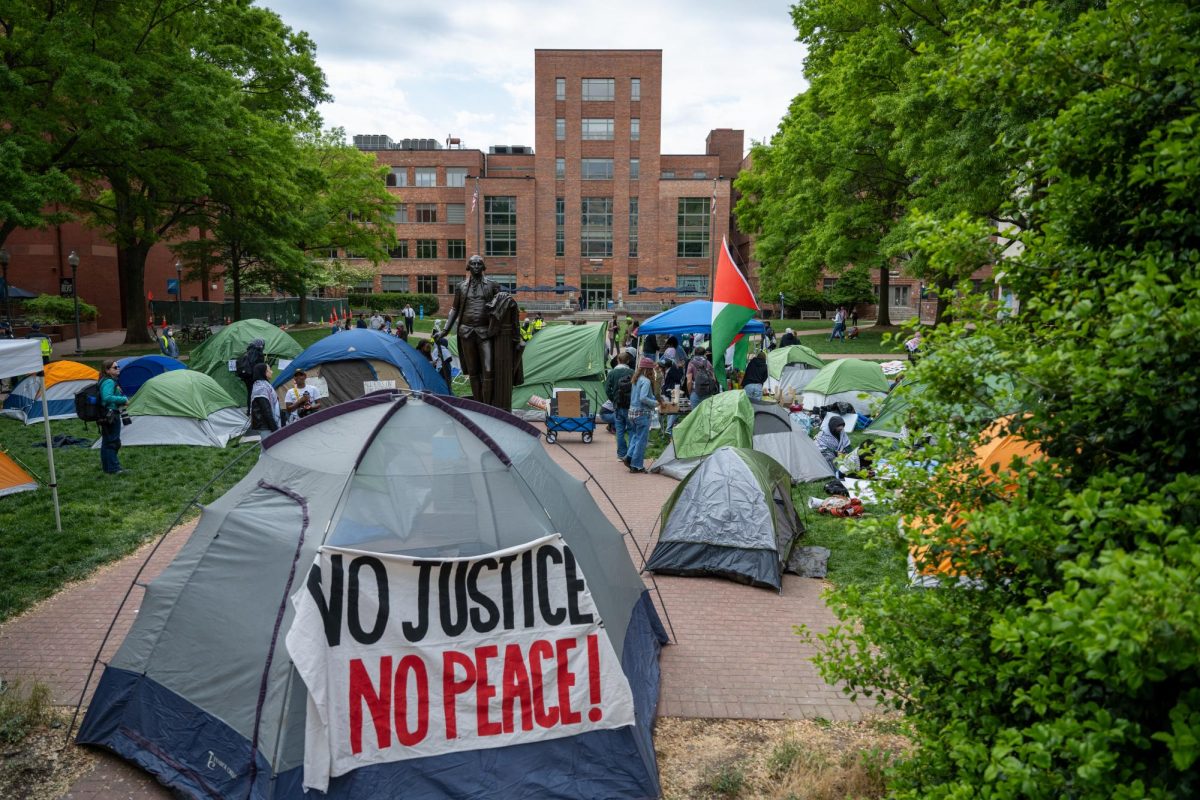As former deputy director of the 9/11 commission, GW professor Chris Kojm is experienced in leading discussions on U.S. security and foreign policy. He reprised this role last week, serving as moderator for a Wednesday panel discussion on the country’s progress in fighting terrorism.
Serving as part of the 9/11 commission beginning in early 2003, Kojm worked closely with senior commission members and oversaw a staff of 85 people.
“The commission essentially had two goals,” Kojm said. “One was to tell the facts of the events leading up to and including 9/11, and the other was to offer recommendations on security measures.” The commission, which was created by President George W. Bush in 2002, issued its final written report in July 2004.
Almost four years later, Kojm said that national security will continue to be a salient issue. He praised Wednesday’s forum as an “assessment of where we are with respect to U.S. security.”
The panel discussion was part of the Elliott School’s Security Policy Forum, a lecture series created last year by Eliott School Dean Michael Brown.
The panel’s three participants – terrorism experts Daniel Byman, Bruce Hoffman and Daniel Benjamin – presented a grim outlook of the counterterrorism challenges the U.S. will face over the next few years. The panelists devoted a large portion of their discussion to an analysis of the terrorist network Al Qaeda and its ability to regroup after several U.S.-led attempts to destroy it.
Hoffman, a Georgetown professor, said that August marks the 20th anniversary of Al Qaeda’s formation and added that Al Qaeda’s durability shows that the group has “enormous capability to adapt and adjust.”
“This is significant, because most terrorist groups haven’t a prayer of lasting that long,” Hoffman said. “Ninety percent (of terrorist groups) do not last a year.” He said that the terrorist group, which grew out of uprisings against the Soviet occupation of Afghanistan in the mid 1980s, has focused on boosting its communication abilities, such as creating Web sites and servers, in order to reach an international audience.
Benjamin agreed, saying that Al Qaeda’s videos and other online communications are designed to “glamorize” the group.
Benjamin, a senior fellow in foreign affairs studies at the Brookings Institute, also commented that American involvement in Iraq would perpetuate the existence of Al Qaeda and other terrorist groups.
“There will be this ‘Ground Hog Day’ phenomenon of muhajadin constantly reasserting its status to the Muslim world,” he said. “That’s why we need to get out (of Iraq) sooner than later.”
Byman did offer a bit of good news, she said the United States had effectively weakened Al Qaeda that large-scale attacks requiring long-term planning were difficult to execute. Byman, also a Georgetown professor, stressed that Homeland Security needed to develop a firmer plan regarding domestic security.
“We have no strategy for allocating resources, and for deciding what our priorities are,” he said.
All three panelists agreed that the United States’ time in both Afghanistan and Iraq would last several more years. Kojm said that he thought the terrorism panel discussion was a success.
“The representatives were three very thoughtful people,” he said. “They presented a good range of opinions.”







